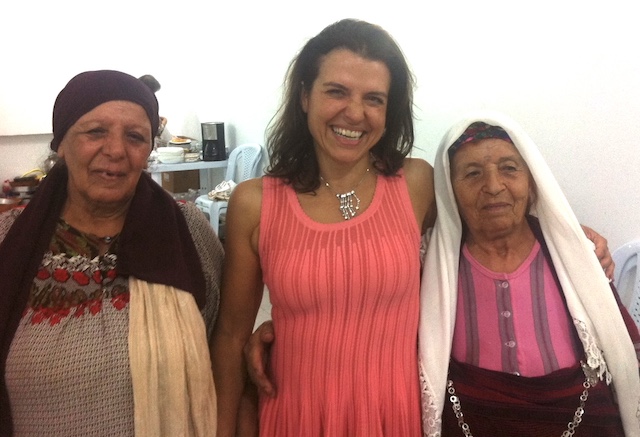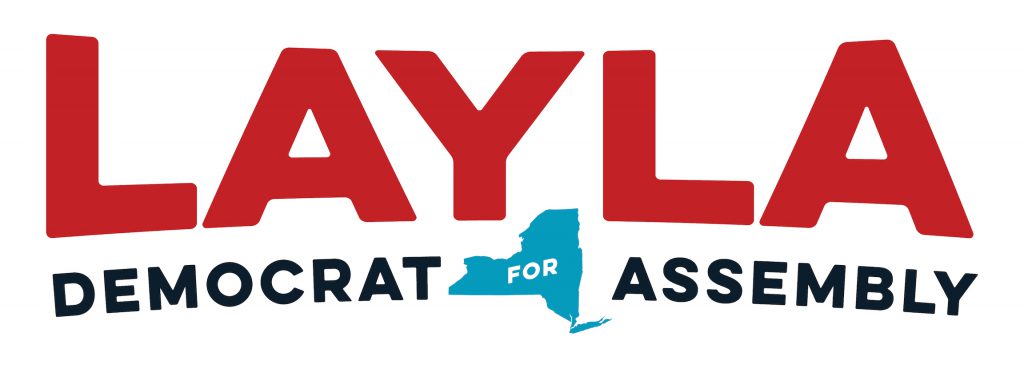
BY LAYLA LAW-GISIKO (candidate, NYS Assembly District 75) | My mother was born in Tunisia, a small North-African country, slightly smaller than the state of Kansas. She was the fifth child and the third daughter in a family of nine children. My mother’s two older sisters did not go to school. My grandmother was illiterate. Back then, it was a relatively normal occurrence. The country was under French colonial domination, but school was not yet mandatory.
Although her sisters were barred from going to school, my mother really wanted to go, so she asked her father and after a bit of persuasion, it was agreed that she would be allowed to. She was told she needed un cartable, the French word for school bag. But September came and her father had not yet bought her the necessary cartable. September turned into October. Each week, her father would promise that he would buy the accessory in the capital city, Tunis. And every week, he would return empty-handed, with some excuse or another.
One October morning, as my mother, seven-years-old at the time, was mindlessly playing in the tiny courtyard, her uncle paid a visit. Her mother’s brother was a kind and well-respected man. When he saw my mom, he asked, “What are you doing here?” Taken aback, my mom mumbled, “What are you talking about? I’m home. I’m not doing anything.” He looked her in the eyes and said, “Exactly!! Why are you not in school?” “Ah!” She replied, “Yes, yes, I’m going to go to school, but Baba did not buy me my school bag, so I can’t go yet, but I’m going as soon as I get the bag.”
The uncle said, “Halass! (Arabic for “enough”), go get dressed. You are going to school today.” “But, but,” objected my mom, “I don’t have a school bag.” “You don’t need a school bag. We are going now. I will talk to the principal and they will figure something out.”
And so they went. They walked through the dusty streets under the high sun, to the local French school run by French nuns. My mother did not know how to write, she did not speak French, her mother and sisters were illiterate. But thanks to this uncle, a true feminist, she started her journey to be educated.

The path was arduous. But she stuck to it. The teachers made it their daily task to help her learn how to read, write, and count. The principal did not care or mind that the school bag was not part of her accoutrement. Eventually, she got all she needed, including literacy. After her, all her younger sisters all went to school. My mother graduated from high school, obtained a scholarship to study at La Sorbonne in Paris, graduated from college, and settled in France.
By contrast, her older sisters remained illiterate. My aunts still live in their rural small town in Tunisia. It took them another generation to see the transformative impact of education, with their own daughters.
If it were not for this uncle, if it were not for access to school, my mother would have lived a drastically different life. She would never have emigrated to France. I would not have been born. I would not have been given the opportunity to emigrate to this great city of New York in pursuit of yet more opportunities.
When I hear people share that their parent was the first in the family to graduate from high school or college, I can’t help but smile, thinking that my mother was the first girl in her family to become literate.
I was not meant to be where I am today. My mother defied huge odds. I followed suit when I came to New York, alone, with my two duffel bags. I barely knew anyone. My English was not so good. I’ve earned where I am today with labor, integrity, and the support of mentors who came to appreciate my values and my work ethics.
My mother’s own path has given me the absolute certainty that education is the most important factor in an individual’s outcome. All the studies show that higher education correlates with every positive factor you can think of: lower diabetes, cholesterol, divorce rate, teenage pregnancy, cancer, housing stability, and more.
So how does that translate into policy?
The best investment a state can make is in education. The principle is simple: educate as early as you can, make it compulsory, educate for free, support parents in this endeavor, and support teachers so that they can, in turn, do the best possible job as educators.
Let me tell you that I have my package of legislations ready to accomplish just that on Day One.
In addition to being a Democratic candidate for the NYS Assembly District 75 seat being vacated by the retiring Richard Gottfried, Layla Law-Gisiko is also the current Chair of the Land Use, Housing & Zoning Committee of Manhattan Community Board 5 and a member of the Penn Area Community Advisory Committee Working Group.
Chelsea Community News is made possible with the help of our awesome advertisers, and the support of our readers. If you like what you see, please consider taking part in our GoFundMe campaign (click here). To make a direct donation, give feedback, or send a Letter to the Editor, email scott@chelseacommunitynews.com.


You must be logged in to post a comment Login